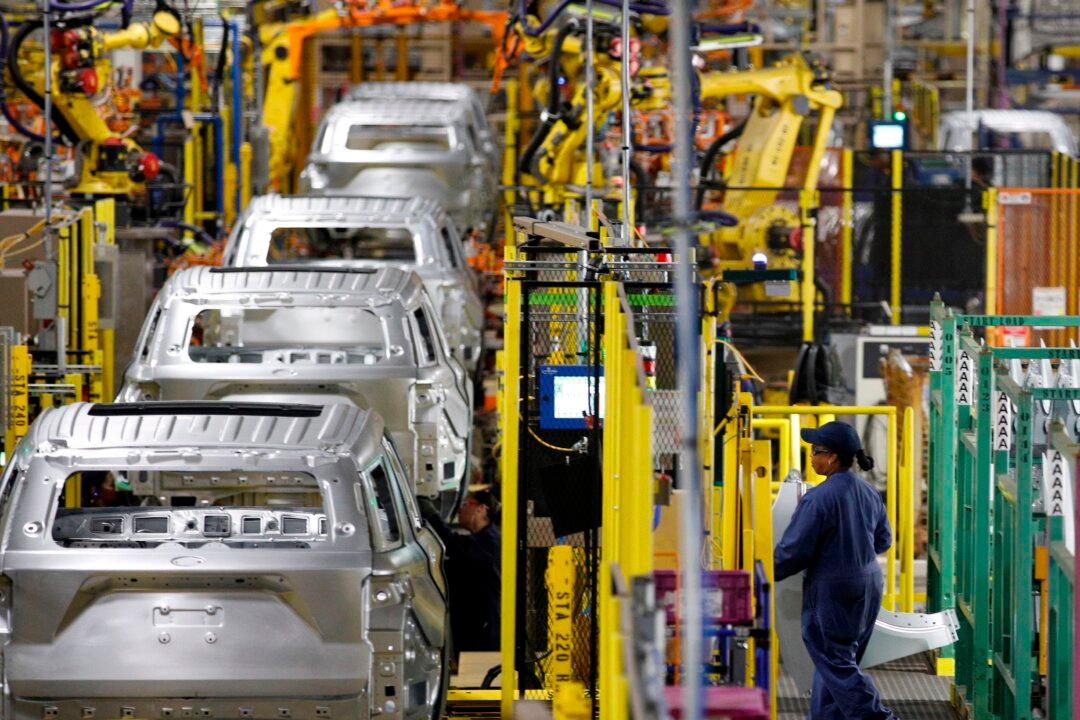American carmakers are opposing the Biden administration’s proposed fuel-efficiency plans for gasoline vehicles—a policy that is part of the administration’s plan to transition the United States into adopting electric vehicles.
In July, the National Highway Traffic Safety Administration (NHTSA) issued a proposal called the Corporate Average Fuel Economy (CAFE) standards which mandates that all new gasoline vehicles sold in the country have an average fuel economy of 58 miles per gallon (mpg) by 2032. As such, beginning in 2027, car manufacturers will be obliged to improve fuel efficiency by 2 percent annually for passenger cars and 4 percent per year for light trucks. The Alliance for Automotive Innovation is calling the proposal unreasonable and is seeking significant revisions to the policy, according to Reuters.





